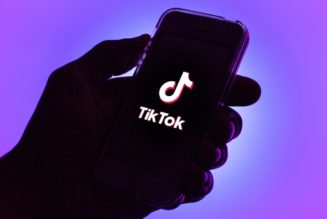
Florida is on the verge of passing legislation that would fine social media companies like Twitter and Facebook that “knowingly de-platform” political candidates. The bill was first proposed in February by Gov. Ron DeSantis, a supporter of former President Trump, although Florida Republicans insist the bill has nothing to do with the former president, a famous denizen of social media who was banned earlier this year by major platforms.
The Florida House of Representatives passed SB 7072 by a vote of 77 to 38 on Thursday, after the state Senate voted Monday to pass the measure. The bill now goes back to the Senate to approve some of the changes made by the House; the Senate’s version called for fines of $10,000 per day for banning a political candidate and $100,000 if the candidate was running for election. The House version bumped the daily fines to $25,000 and $250,000.
The law wouldn’t apply to temporary social media bans on a candidate, and wouldn’t apply to instances where a platform removes specific posts that violate that platform’s terms of service. But any social media ban that lasts longer than 60 days would result in a fine, and, the platforms would have to make available to users any content the candidate posted before their account became inactive.
The bill also contains a very Florida-specific exemption for any “information service, system, internet search engine, or access software provider operated by a company that owns and operates” a theme park or large entertainment complex. Republican state Rep. Blaise Ingoglia said that exemption was included so that the Disney Plus streaming service “isn’t caught up in this.” The Disney World park in Orlando brings in significant tax revenue for the state of Florida, which relies heavily on tourism dollars.
SB 7072 also bars social media platforms from restricting “journalistic enterprises,” which the bill defines as entities that do business in Florida and have at least 100,000 monthly active users or 50,000 paid subscribers. And the bill includes provisions for conservatives’ favorite social media bogeyman: shadow-banning, which it defines rather opaquely as “action by a social media platform, through any means, whether the action is determined by a natural person or an algorithm, to limit or eliminate the exposure of a user or content or material posted by a user to other users of the social media platform.” Users must be allowed to opt out of shadow banning, and platforms can’t shadow ban political candidates or news websites.
Republican supporters of SB 7072 say the measure is intended to protect the free speech rights of Florida residents and “is not about President Trump.” But the bill’s provisions seem tailored to GOP grievances about social media and the 2020 presidential election. Trump was permanently banned from Twitter, Facebook, and other social media platforms for inciting the rioters who attacked the US Capitol on January 6th.
And in October, Republicans called foul after Facebook and Twitter restricted the reach of a disputed story in the New York Post about President Biden’s son Hunter (Twitter CEO Jack Dorsey later called the platform’s decision to suspend the NY Post Twitter account “a mistake.”). The new Florida legislation would appear to address these issues.
Florida Democrats called the bill a “political agenda feeding into a political base.” Democratic state Rep. Joe Geller said it was “wrong for the government to impose speech on private businesses.”
The bill is now in the hands of the Florida Senate, and Gov. Ron DeSantis is expected to sign it when it reaches his desk.
Disney and Facebook didn’t immediately reply to requests for comment Saturday. Twitter declined to comment.









